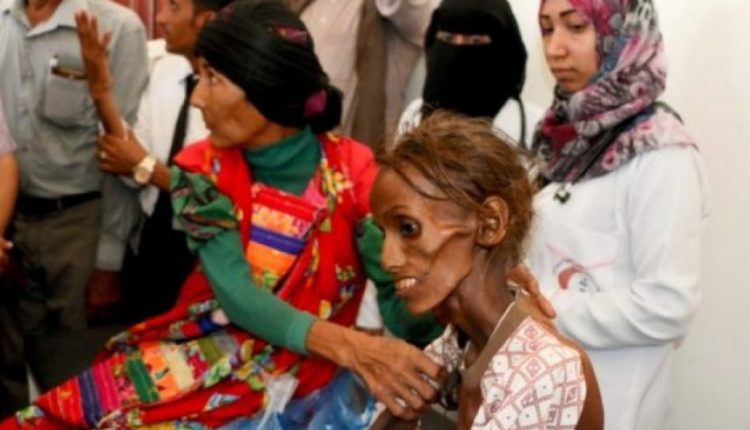An international report confirmed that, during the past seven years, the war in Yemen has killed an estimated 233,000 civilians, injured tens of thousands, and displaced more than 4 million Yemenis.
The report issued by an independent assessment team, including researchers from the Institute of Development Studies, indicated that Yemen has become the largest and worst humanitarian disaster in the world, despite the provision of an estimated $16 billion by United Nations agencies in response to the humanitarian crisis in the country mired in war for seven years.
The report indicated that the United Nations response to the crisis in Yemen was "unacceptably low".
The United Nations failed in Yemen
The report of the Inter-Agency Humanitarian Assessment for the Response to the Humanitarian Crisis in Yemen stated that the findings issued by the assessment constitute an accurate assessment of the work of the United Nations in Yemen since 2015, noting the acute shortage of appropriate equipment and the failure to provide adequate infrastructure for displaced Yemenis.
The report stated that the quality of humanitarian aid in many areas was "unacceptably low", with "substandard" construction and "supplements that were defective or inadequate".
The report notes that researchers from the assessment team have repeatedly heard that it is extremely difficult for civilians to get aid, often because the ones who are in deep need of this aid are not on the list of assistance. These lists lack comprehensive coordination and should be supervised across various UN agencies. The UN also has not updated the list and many vulnerable people were not written down.
poor planning
The report concluded, “Due to short-term planning and budgets for the United Nations response to humanitarian emergencies, weak oversight, and poor coordination between United Nations agencies, the unprecedented funding spent since 2015 has kept Yemen on “life support,” but it has failed. in making fundamental improvements to the lives of ordinary Yemenis.”
“The United Nations has been successful in keeping life support systems operating in Yemen for the past six years, but we have found that short-term humanitarian funding is ultimately not appropriate for a protracted crisis,” said Philip Braudfoot, Research Fellow at the Institute for Development Studies and a member of the Yemen Interagency Assessment Team.
"In cases like Yemen, there must be a shift towards long-term development financing and support that can bring sustainable improvements in areas such as nutrition, health, education, protection and livelihoods," he added.
The report criticized the "fortifications" of UN staff - who remained in their offices due to what was assessed as "excessive security measures" - preventing them from visiting communities to oversee aid quality standards or identify their true needs.
“The UN operation in Yemen has saved lives, but despite the unprecedented $16 billion humanitarian operation, Yemen is still on hold with a thin thread,” said Louis Seda, an ISD associate emeritus and humanitarian specialist who led the Yemeni inter-agency assessment team. Aid work across UN agencies has slowed but has not prevented the collapse of basic services, and the situation remains incredibly fragile for most Yemenis.
Failure to meet the needs of the most vulnerable
“The most vulnerable groups – women, children, the elderly, and people with disabilities – have suffered the most, but their basic needs have not been met, as an example,” said Abeer Al-Absi, a member of the assessment team in Yemen.
Al-Absi added, “Women are still deprived of the most basic rights to safety and dignity because protection is not at the core of the humanitarian response in Yemen. In the future, vulnerable groups must be placed at the heart of all humanitarian programs.”
The report made 12 recommendations to improve the humanitarian response in Yemen. These recommendations include a call to urgently improve oversight, raise aid quality standards, and better direct aid to the most vulnerable groups.
The report pointed out that Yemen is still at war and in a precarious situation, despite the recent truce, warning that until a political solution is reached, and a new system for long-term development financing is established, any cuts in the humanitarian budget will have dire consequences.







